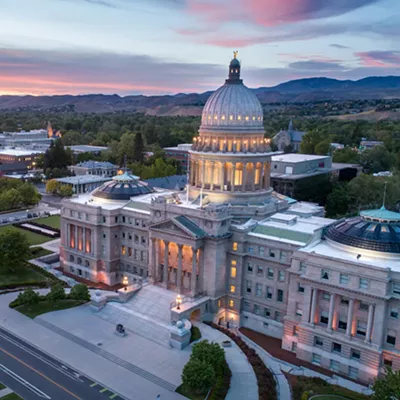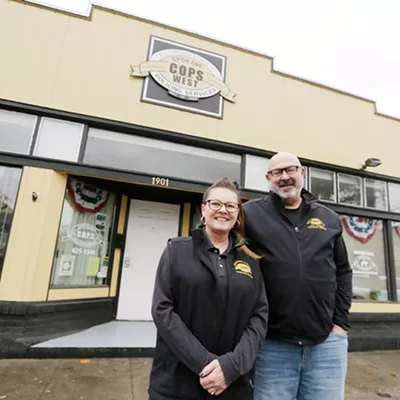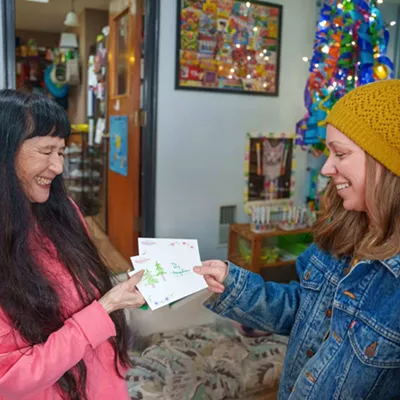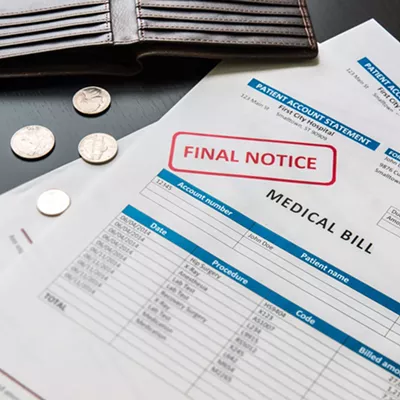
Despite multiple attempts by Idaho Attorney General Raúl Labrador to block the open primary initiative named Proposition 1, the measure will appear on Nov. 5 ballots.
In a lawsuit, Labrador alleged that the groups working to get the initiative on the ballot did not gather signatures using the approved ballot title language.
The case was heard in Ada County, where Judge Patrick Miller dismissed the lawsuit on Sept. 5. Miller stated that Labrador failed to establish a violation to the extent necessary to declare the signatures invalid.
Now, Idahoans will decide whether to pass the initiative, which would move the state's elections to ranked-choice voting, with open primary elections and the top four candidates moving on to the general election ballot.
In 2011, House Bill 351 changed Idaho's partisan open primary to a closed primary system. Under this, a voter must be registered to a party to vote for that party's candidates in the primary, unless a party allows outside voters to participate.
Currently, only registered Republicans are allowed to vote in Republican primary elections, which determine that party's candidate for the general election. The Constitution and Libertarian party primaries are also closed, but unaffiliated voters and members of other parties are allowed to participate in the Democratic party primaries.
Proposition 1 would implement a single primary ballot open to all voters, who could vote for a candidate from any party. The four candidates with the highest votes in each race for county, state or federal office would move on to the general election, where the ranked-choice voting would take place.
On general election ballots, voters would rank their choices in each race from one to four, in order of preference. The candidate who receives the smallest number of first choice votes would be eliminated. The votes of those who ranked that candidate first would instead go to each voter's next highest-ranked candidate. This process continues until the candidate with the most votes wins.
According to state data, there are more than 1 million registered voters in Idaho, but 26% are unaffiliated with a major party and are not allowed to vote in the closed primary unless a party allows them to.
Luke Mayville, the co-founder of Reclaim Idaho, a grassroots advocacy group, is helping promote the initiative with the Idahoans for Open Primaries coalition. Mayville's work with Reclaim Idaho helped get a Medicaid expansion initiative on the 2018 general election ballot, which passed with more than 60% of the vote.
In Idaho, 59% of voters are Republican, meaning the candidate picked in that party's closed primary is often likely to win the general election. Mayville says that currently, unaffiliated and independent voters are blocked from the most critical primary elections unless they join a party they don't believe in.
"About a third of the electorate is shut out of the process," Mayville says, "and that leads directly to the second big problem, which is that we end up with leaders who don't represent the independent voters and don't represent the needs and interests of the broader community."
SUPPORT AND OPPOSITION
The coalition supporting this year's initiative also includes Republicans for Open Primaries, Mormon Women for Ethical Government, and Veterans for Idaho Voters.Many Republican officials oppose Proposition 1, including the Idaho GOP Chairwoman, Dorothy Moon, who in a press release argued that the Democratic party is working to create a "jungle" primary because their ideas are unpopular.
A jungle primary is open to all voters, and candidates who receive the most votes move on to the general election, regardless of their party.
"Unable to win the battle of ideas, Democrats want to change the rules instead," Moon said.
Yet, several former Idaho Republican leaders support the proposition, including former Idaho Gov. Butch Otter, former Lt. Gov. Jack Riggs and former Kootenai County Commissioner Chris Fillios.
Jake Ball, who founded the Idaho Fair Elections PAC, says he believes the open primary will potentially shut out Democratic and independent candidates from the general election.
"They're calling it an open primary, but it's really the same kind of jungle primary that they do in the state of California, where they put all of the candidates in one big soup," Ball says.
California has a top-two primary, in which the two candidates who receive the most votes in a race move on to the general election, meaning both could be Democrats or Republicans. Washington was the first state to adopt a top-two primary system.
Some claim that if Proposition 1 passes, it could also cost millions of dollars to update vote tabulation systems.
"We don't know how much it's going to cost, except that the secretary of state has said between $25 [million] and $40 million," Ball says. "That's not a small amount of money for the state of Idaho."
Ball says some small counties that count by hand could have issues rolling out a ranked-choice system.
However, Mayville argues that ranked-choice voting systems can be implemented in a fiscally conservative way, noting that Maine was able to update their tabulation systems for $500,000, or just 50 cents per voter.
He acknowledges that updating software and educating the public will cost money, but he says the investment is worth it if the state's nearly 270,000 independent voters get a say in primaries.
RANKED CHOICE
Critics point to the pricey rollout of ranked-choice voting in Alaska. It was initially estimated it would cost the state $906,000 for voter education and election equipment, but Carol Beecher, director of Alaska's Division of Elections, told Poynter the actual cost has been closer to $3.5 million.Alaska voters approved ranked-choice voting in 2020, which was followed by a two-year public education process. The ranked-choice system may have contributed to the defeat of Alaska's former Republican Gov. Sarah Palin and Republican Nick Begich in the race for a U.S. House seat, which was won by Democrat Mary Peltola, who became the nation's first Alaska Native sworn into Congress.
RepresentUs campaign adviser Bo Harmon, who has worked on high-profile Republican campaigns, says ranked-choice voting encourages bipartisan coalitions. RepresentUs is a nonpartisan group working to fix broken government systems.
Harmon points to how Peltola built bipartisan support by asking to be voters' second choice if she couldn't be their first.
"That kind of approach, as opposed to the way that Palin and Begich campaigned against one another, ended up being a much more successful model," Harmon says.
Ranked-choice voting doesn't favor one party or the other, Harmon says, but instead the majority's will.
"Conservative leaders like Butch Otter and Jack Riggs and others have all come out in favor of this," Harmon says. "They recognize it's a way of implementing the will of the voters rather than the will of a faction of a single political party."
Mayville says he wants Idahoans to remember that it's not a partisan issue, it's about giving everyone in Idaho a voice.
"We expect a whole lot of misinformation to be spread around about Proposition 1," Mayville says. "This initiative is simple. It's about returning to a time when all voters, including independents, had a real voice in our election process, and it's about giving every voter better choices at the ballot box." ♦
























